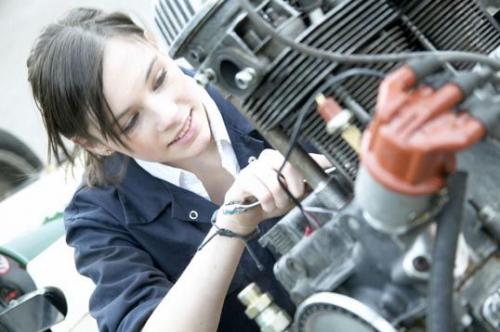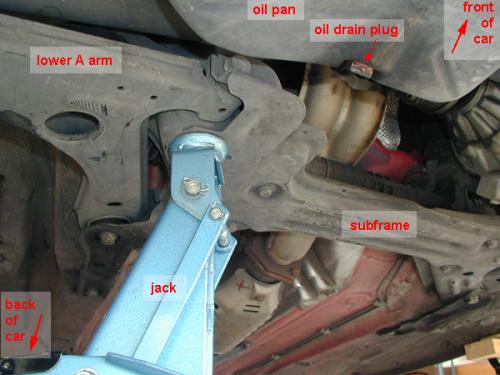How to make your car last longer
According to insurance statistics, neglect of proper routine maintenance is the number one reason for the enormous increase in car repairs being required. With automobiles as your primary source of transportation, taking care of your car makes good sense. By following a preventative maintenance schedule, you can often double your car's life expectancy and spend less time visiting your local mechanic. Most of these suggestions are not very difficult to do, others will require a professional car mechanic. But all of them will, without a doubt, make your car last longer.

Things you’ll need
- a good reliable mechanic
- basic mechanic’s tools
- specific automobile manufacture’s repair manual

Procedure Steps
- Once every week or 1,000 miles, you should check the pressure of your tires, and the level of your engine’s radiator coolant.
- Each and every two weeks or 3,000 miles, you should check the level of your engine’s oil, transmission fluid and brake fluid. Also, you should check all drive belts (fan belts) for fraying or cracking. It’s also necessary to wash and wax your car to protect its finish.
- Each and every 6 months or 6,000 miles, you should rotate your car’s tires, check the brake shoes (replace if needed), have the suspension inspected, and lubricate the chassis. The engine oil should be changed at this time, too, if not earlier (for hot or dusty environments, or if you do a lot of stop and go driving). Regular oil changes are the most important thing you can do to protect your engine and make your car last longer.
- Each and every 12 months or 12,000 miles, you should flush the radiator and replace the anti-freeze coolant, check the air conditioning system, and replace the air filters.
- Each and every 2 years or 24,000 miles, you should replace spark plugs (30,000 miles average suggested for unleaded gas) and the PC valve. Also, you should change the automatic transmission fluid, filter and pan gasket. Brake linings should be inspected for wear and/or replacement at this time, as well.
- Each and every 3 years or 30,000 miles, you should check and test ignition wires (replace if needed). Have the cooling system tested, and the heating hoses inspected (replace if needed). Check drive belts and replace if needed. Also, you should replace the fluid in the differential and, if applicable, the manual transmission.
- Whether you are a man, woman, boy or girl, learn to do some routine maintenance on your car yourself. A multitude of books, videos, magazines and classes are available at your local library that will teach you for free if you don't already know.
- Here are some driving tips that will make your car last longer. Never race or gun your engine when you start it up, accelerate slowly and smoothly when your engine is cold. Also, keep from “jackrabbit” starts and stops at all times—always accelerate and brake gradually. Avoid “burning rubber” (spinning your tires with the brakes on) as it places excessive wear on the transmission, rear end, not to mention wearing out the tires.
- Here are more driving tips that will help to make your car last longer. Refrain from tailgating, tire squealing turns, flying over speed bumps, pot holes and over-revving your engine. When possible, avoid driving your car during rush hour stop and go traffic periods. Don't ride the brake pedal, this wears out your brake linings pre-maturely, and wastes fuel.
- For longer tire life and better gas mileage, keep your car’s front-end aligned, and your tires properly inflated. An international tire company estimated that 33% of all tires on the road are under-inflated. When purchasing or changing tires, make sure you have them spin balanced.
- Avoid turning on the car air-conditioning while running at highway speeds as this tends to put an immediate heavy load on your compressor and clutch. This could cause excessive wear and tear on these components. Instead turn your air conditioner on at car speeds below 25 to 30 m.p.h. This helps to preserve your expensive compressor.
- Try to avoid running your car with the tank low on gas. Keeping a low tank of gas increases the chance of dirt, water/moisture and rust forming in your fuel system. Keeping a full tank decreases the chance of dirt and other foreign matter forming in your fuel system.
- If you have a manual transmission, downshift to slow your car down instead of using your brakes. This will save wear and tear on your braking system.
- Protect your car's interior and make it last longer by parking your car in the shade, using a windshield sun guard or car cover. Also, if you spill something inside your car, clean it up immediately before it dries. Delaying even just a few minutes can sometimes leave a permanent stain or spot. To better protect your car seats, spray them with a protective treatment coating.

Tips
- Common sense dictates that the cheapest is not always the best. Normally, the best mechanics with the best equipment and training cost more. Often mechanics that charge extremely low prices have inferior or out-dated equipment, little to no formal training or are under-insured.
- When you find a good mechanic who you can trust, stick with them even if their prices are a bit higher. You'll always save time, money and aggravation in the long run.
- If you have a major repair to do, it's wise to get at least 3 estimates, if possible, before you decide. Make sure you get promised repairs in writing including how
- much it will cost prior to having the work done.
- Avoid having repairs done at a car dealership except to have highly specialized work done that can't be done elsewhere.
- Read and follow your car owner's manual—it's your car's bible for making it last longer. For detailed repair information, purchase the manufacture’s shop manual.
- A garaged car lasts longer, a car port is next best, and a car cover is a distant third.
- Tires driven at 70 m.p.h. wear out almost twice as fast as cars that go 50 m.p.h.

What did you think of this tutorial?
+ 16
1 CommentsAdd a Comment
informative




